A car is a complex machine; its sound can tell us a lot about its condition. When your vehicle is making a sound like air escaping, it could be a sign of an underlying issue. So, why my car sounds like air escaping?
If your car makes a sound like air escaping, it could be caused by various issues. It could be a vacuum leak, an intake manifold gasket leak, an exhaust valve failure, or a damaged exhaust system component.
In this blog, we’ll look at what could be causing your car to sound like air is escaping, so you can ensure your vehicle is safe and running smoothly.
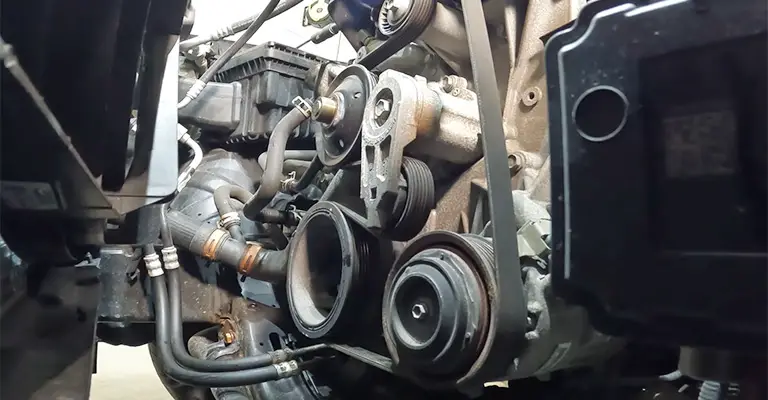
Reasons Why Your Car Sounds Like Air Escaping?
To help you narrow down the possibilities, here are the most common reasons your car sounds like air escaping.
Faulty Exhaust System
Your car’s exhaust system routes exhaust gases away from the engine. But if there’s a leak in the system, it can cause air to escape with a hissing sound.
Leaking Intake Manifold
The intake manifold is responsible for distributing air to the engine. If there’s a crack or leak in the manifold, this can cause a hissing sound as air escapes.
Faulty Exhaust Manifold Gasket
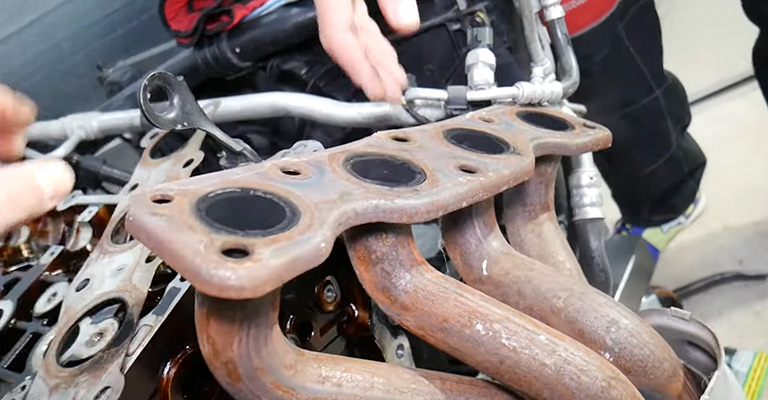
The exhaust manifold gasket is responsible for sealing the connection between the exhaust manifold and the engine’s cylinder head. If it’s damaged or worn, this can cause air to escape, making a hissing sound.
Loose Vacuum Hose
The vacuum hose routes air from the intake manifold to the engine’s vacuum port. If the hose is loose, air can escape, making a hissing sound.
Air Filter Becomes Loose or Damaged
The air filter filters out dirt and debris that can enter your engine. If the filter is loose or damaged, air can escape, making a hissing sound.
Malfunctioning PCV Valve
The PCV (Positive Crankcase Ventilation) valve is responsible for routing air out of the crankcase, which is the bottom part of the engine. If the valve is defective, air can escape, making a hissing sound.
Leaking Fuel Injectors
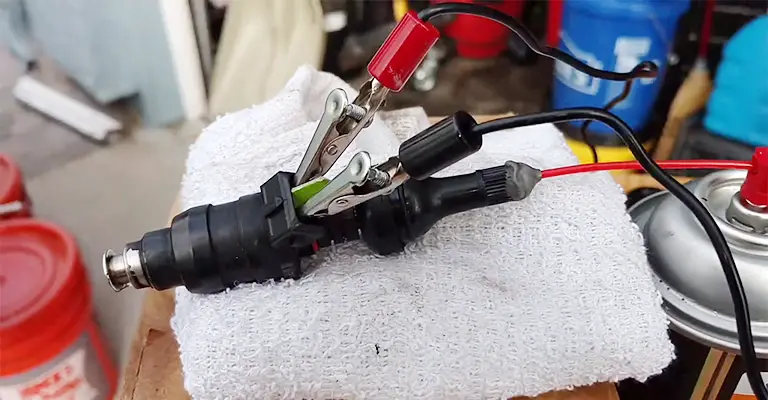
The fuel injectors are responsible for injecting fuel into the engine. If one or more of the injectors are leaking, this can cause air to escape, making a hissing sound.
Faulty Fuel Pressure Regulator
The fuel pressure regulator is responsible for maintaining the correct amount of pressure in the fuel system. If it’s defective, air can escape, making a hissing sound.
Loose Air Intake Boot
The air intake boot is responsible for routing air from the intake manifold to the engine’s air intake. If the boot is loose, air can escape, making a hissing sound.
Faulty Exhaust Gas Recirculation (EGR) Valve
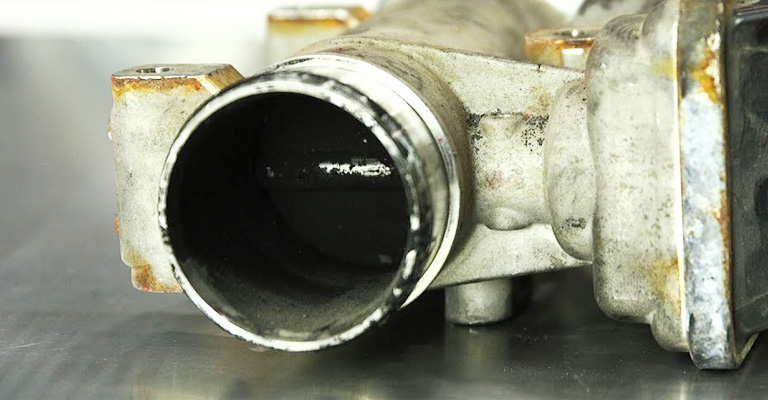
The EGR valve routes exhaust gases back into the intake manifold. If it’s defective, air can escape, making a hissing sound.
How to Troubleshoot: My Car Sounds Like Air Escaping
Fortunately, this kind of issue is relatively easy to fix. Here are the steps you can take to troubleshoot the car sounds like air escaping when accelerating:
Check the Exhaust System
Several factors, including a faulty muffler, a blocked exhaust pipe, a leak in the exhaust system, or a defect in the catalytic converter, can cause exhaust problems.
Inspect your exhaust system from the engine to the back of the car and look for anything unusual. If you discover any exhaust system problems, bring the vehicle to a mechanic for an inspection and repair.
Inspect for an Exhaust Leak
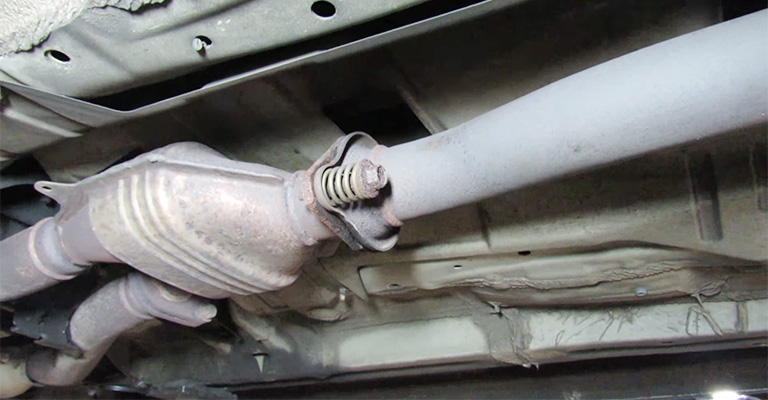
Check for an exhaust leak if the exhaust system appears to be functioning correctly. A crack in the exhaust pipe, a faulty muffler, or a damaged catalytic converter often causes exhaust leaks.
It’s crucial to find any exhaust leaks early as they can cause further issues such as increased fuel consumption, engine noise, and harmful emissions.
To identify an exhaust leak, turn the engine off and listen closely. A leak often makes a hissing sound challenging to locate without a keen ear. If you suspect an exhaust leak, have a mechanic identify and repair it.
Ensure the Air Filter Is Clean
The air filter is designed to stop harmful particles from entering the engine but can become clogged over time. If the air filter is clogged, it can cause a decrease in your engine’s power and an increase in fuel consumption.
Check the air filter for any buildup of dirt or debris and, if necessary, clean or replace it. This should be done every 10,000 miles for maximum performance.
Inspect the Ignition System
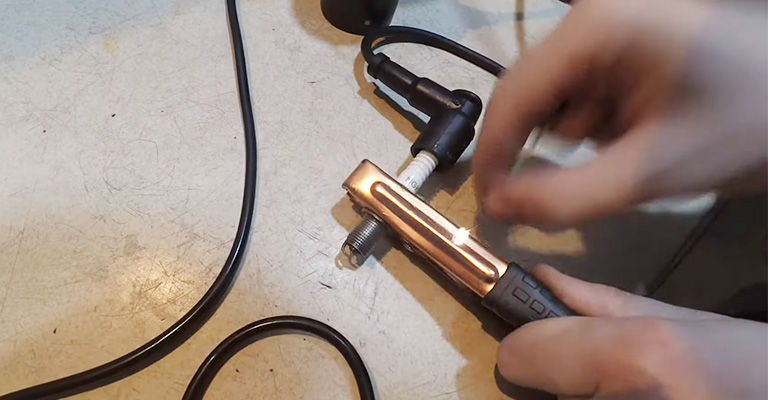
The spark plugs and wires in your car’s ignition system are essential. When they fail, they can cause a wide range of issues, including a decrease in fuel efficiency, an increase in engine noise, and an increase in emissions.
If you have an older car, examine and replace the spark plugs and wires as needed. Spark plugs are inexpensive and easy to replace.
Check for Vacuum Leaks
Vacuum leaks can be caused by wear and tear on the engine’s hoses and other components. Inspect your engine’s hoses for any signs of wear or cracks, and look for any gaps.
Keep in mind that vacuum-operated devices like brakes and power windows require a vacuum. If a vacuum leak is suspected, have a mechanic test the vacuum system and repair the leak.
Check the Fuel System
The fuel system delivers a consistent flow of fuel to the engine, but it can become clogged or damaged over time.
Check the fuel system for any blockages or leaks and have them addressed promptly. Additionally, check the fuel filter to see if they need to be changed.
Check the Throttle Body and Intake Valve
Over time, the throttle body and intake valve can become clogged with dirt, grime, and debris. As a result, the seals may become damaged or break. Clean the throttle body and intake valve and replace the seals.
If you cannot check the cylinder heads and the intake valve, seek professional repairs for proper cleaning and maintenance.
Check the PCV Valve
If the PCV valve is not functioning properly, air may escape from the cylinder head and cause your car to make an escaping noise when accelerating. Check the integrity of the valve and replace it if necessary.
Observe the Catalytic Converter
The catalytic converter helps reduce the number of harmful emissions released from the car. Over time, it can become clogged and cause a decrease in engine power and fuel efficiency.
If you suspect the catalytic converter is clogged, have it cleaned or replaced.
Have a Professional Diagnose the Problem
If you have taken all the steps above and cannot locate the source of your car’s air-escaping acceleration issue, it’s best to have a professional diagnose the problem.
A mechanic with experience in car repair can diagnose the issue and provide the necessary repairs so you can get back on the road.
Why Does the Car Sound Like Air Escaping When Turned Off?
We’ve all heard the sound that a car makes when it’s turned off after a long drive. It sounds strange, almost like the air is escaping somewhere, and it can be quite a surprise the first time you experience it.
But why do cars sound like air escaping when turned off? Let’s take a closer look at this common phenomenon.
Engine Vacuum
Most cars produce a vacuum when running. This is created by the engine’s cylinders sucking in air through the intake manifold and expelling it through the exhaust.
When you turn the car off, this vacuum is released, which produces the sound of air escaping.
Valve Shut-off Noise
When the engine is turned off, the intake and exhaust valves in the engine’s cylinders are shut off. This produces a loud clapping sound that some people may mistake for air escaping.
Pressure Difference
The car’s hood pressure drops when the engine downshifts and the brakes are engaged.
This disparity in pressure can cause a hissing sound as the ambient atmosphere is sucked into the engine compartment and out through the exhaust.
Heat Expansion
When the engine is hot, the engine’s metal, transmission, and other parts expand. As the car is turned off and the metal components cool down, they can contract, making a noise like air escaping.
What Other Sounds Can I Expect from My Car?
Along with the sound of air escaping, you’re likely to hear several other noises:
- A ticking sound may occur if oil is still in the lifters and valves.
- Popping or cracking noises can come from the exhaust system as it cools down after engine shutdown.
- A rattling sound could mean the spark plugs have stuck in their position.
- A squeaking sound can be from the belt and may indicate it’s worn or needs adjustment.
Final Thoughts
Knowing why my car sounds like air escaping is the first step to understanding and finding a fix. The best way to tackle the problem is to narrow down the causes, troubleshoot, and seek professional advice.
It could be caused by something minor like a loose connection or something much more serious like a major mechanical or electrical problem.
Taking the time to identify and address the problem as quickly as possible is the best thing to do for your car’s health and safety.
Leave a Reply